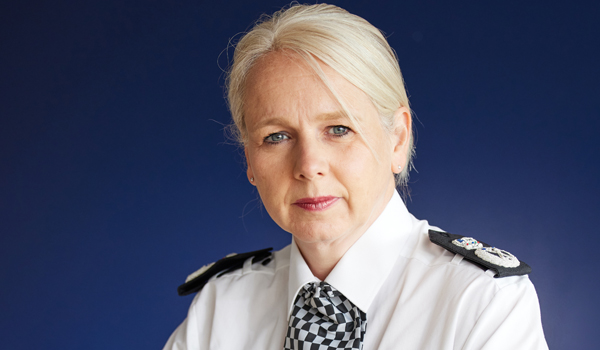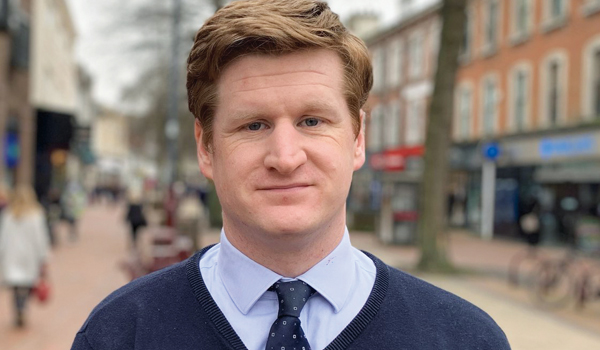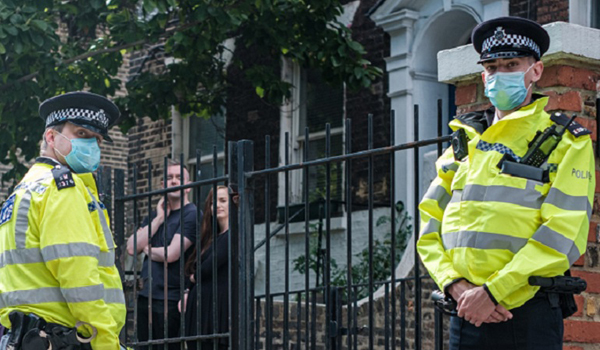Right Care Right Person – a chief constable’s view
Chief Constable Lucy D’Orsi explains why British Transport Police will not be adopting the national ‘Right Care Right Person’ scheme in its entirety.
In the past few months there has, quite rightly, been a lot of conversation – both within police forces and elsewhere – about ensuring that people who suffer mental health crisis have access to the help they need.
It’s a subject I’ve addressed before but, with the announcement of many forces up and down the country adopting “Right Care Right Person”, I felt it needed revisiting. Not least because family, friends, colleagues (serving and retired) and those in the railway industry have asked what British Transport Police (BTP) are going to do.
From my experiences of talking to officers across the three countries within BTP, it’s a similar story wherever you go – officers are spending far too long looking after those in crisis, spending 12 hours, 24 hours, even more, sat in hospital waiting rooms trying desperately to get help for those who need it.
At BTP, we have a proud history of helping those in mental health crisis. On a weekly basis, I’m bowled over by stories of life-saving interventions, of officers running to help without a second thought for themselves and of the public starting conversations with people when they notice something doesn’t look right. With our partners in the rail industry, we’re making more life-saving interventions than ever before – thanks in no small part to our relationship with the Samaritans.
In fact, for every life lost on the railway, there are eight life-saving interventions. Our Small Talk Saves Lives campaign urges people to notice those around them and intervene if they think someone is in crisis. Asking small questions like “where can I get a coffee?” can be enough to interrupt a person’s suicidal thoughts. I’m proud of this campaign, as I’m proud of our pioneering mental health triage car in Merseyside – which sees BTP staff side-by-side with NHS professionals responding to incidents. This has proven incredibly successful and is something I’d like to see rolled out nationwide.
We know that vulnerable people, or those in mental health crisis, are often drawn to the railway. It’s why responding to these incidents is at the core of who we are as a police force.
However, it remains a fact that our officers are spending too long in hospitals when they’ve exercised their powers of detention. It isn’t unusual to hear that a person remains in the care of our officers for upwards of 24 hours while we try to find them help. How can that be right? How is that fair to our officers – who face huge demands on their time – or the person who needs help? Something needs to change.
That brings us to Right Care Right Person and the question of whether BTP will be adopting this in the same way as other police forces. We’ve been involved in the national conversation around this over recent months, we’ve talked extensively to our own people and looked at both the benefits and the impact on other services.
In short, BTP will not be adopting Right Care Right Person in its entirety.
While we recognise and understand the reason for other forces doing so, the very nature of the environment in which we operate is fundamentally different. We’re a national force, the railway is a dangerous place, and we have a duty of care to ensure the safety of those who work and travel on the network. Helping those in crisis is at the forefront of who we are and what we do.
However, I absolutely recognise the pressure our people are under. That’s not something I can ignore.
So whilst we will not be adopting Right Care Right Person, our own project is underway at BTP. ‘Mental Health Crisis to Care’ will deliver a complete review of the way in which we respond to mental health incidents. It will ensure our response is sustainable and effective, whilst recognising our unique environment and the needs of our many different locations.
Put simply, we want to save people’s lives and protect our own people.
The project is in the early stages and will look at making changes that are realistic and achievable for us – from analysing the triaging decisions made in our control room to looking at how we identify the right services to respond. We need to support our people. And it’s also imperative that we ensure we’re as consistent as we can be across the force, addressing the “postcode lottery” of services. A person in crisis in Scotland, Devon or Leeds should get the same access to help as a person in London or Birmingham – hopefully if policing can become more consistent in how we approach vulnerability and mental health, the healthcare system can start to better align.
Part of this work will also be supporting arrangements with mental health trusts and hospitals to minimise the time our officers are spending in those environments. This is a piece of work which runs in parallel with Right Care Right Person. We know other forces are looking to create arrangements that will see section 136 handovers being reduced to one-hour time-frames and we absolutely echo the need for this. Hopefully the collective voice of policing can enhance this conversation and make these plans a reality.
Other plans include ensuring our rail partners are well equipped to ensure that any calls to service are directed to the right agency. We’re currently piloting an Integrated Security and Policing Project, which sees all security personnel at a particular train station – be they from the rail company, the shops and bars within the station footprint, or the officers – coming together on a daily basis to share intelligence and patrol plans. If rolled out nationwide, this will ensure we’re in the best possible position to act together to save lives.
We’re also continuing to support our Harm Reduction Team (HaRT) team, which focuses on proactive intervention to support people who are located on a frequent basis at railway stations. It sees mental health practitioners working with specialist police officers to reduce presentations on the network, prevent disruption to the railway and prevent harm to both the individual and the agencies that intervene. We’re seeing huge reductions in the number of times that people present to us on the railways after being supported by HaRT and are looking at whether this can be rolled out nationwide.
Ultimately, our duty of care will not and never will change and we are fully engaged in the national work. Over the coming years, people will see a difference in the way policing operates and how mental health incidents are dealt with. But even though there will be differences, no one from policing or the health sector wants to create a vacuum into which vulnerable people may fall. We joined policing to help people and that’s a commitment we fight to uphold.






